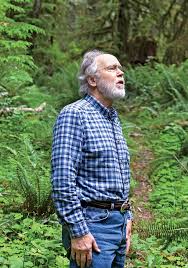 How do we know where we are online? It’s easy to make fun of the Twitter zombies, those lost people head down tapping away on their iPhone as they walk or drive. But truth be told, I’ve bumped into things. I’ve spent minutes transfixed by Steve Jobs’ legacy. The smartphone makes us all look dumbstruck. We are social media suckers, scrolling down, looking for friends for enemies, for our next like, our next outrage. What’s Trump saying now on the stump? Who’s feeling the Bern? Aw, what a cute puppy. We see our world delivered in bits and bytes and digestible data. We lose sight of our surroundings. We are lost to physical reality with the virtual world in our hand. I’ve been thinking about place and its importance of it in an increasingly data fragmented world. Google maps will gladly show us the street scene, but how do we understand where we are? Remember Nature? What do we think when we hike out to a gorgeous vista or up a great trail. Do we automatically take a selfie on top to post to Facebook? Are we conquering the mountain or are we its companions. I’ve been turning to Barry Lopez, one of our foremost writers and thinkers about place. How do we think about nature. Here’s Lopez on “A Literature of Place.” These seem like instructions for re-enchanting our world, breathing as animals on our planet, finding the human home in the cosmos. “How can you occupy a place and also have it occupy you? The key, I think, is to become vulnerable to a place. If you open yourself up, you can build intimacy. Out of such intimacy may come a sense of belonging, a sense of not being isolated in the universe. How does one actually enter a local geography? (Many of us daydream, I think, about re-entering childhood landscapes that might dispel a current anxiety. We often court such feelings for a few moments in a park or sometimes during an afternoon in the woods.) To respond explicitly and practicably, my first suggestion would be to be silent. Put aside the bird book, the analytic state of mind, any compulsion to identify and sit still. Concentrate instead on feeling a place, on deliberately using the sense of proprioception. Where in this volume of space are situated? The space behind you is as important as what you see before you. What lies beneath you is as relevant as what stands on far horizon. Actively use your ears to imagine the acoustical hemisphere you occupy. How does birdsong ramify here? Through what kind of air is it moving? Concentrate on smells in the belief you can smell water and stone. Use your hands to get the heft and texture of a place - the tensile strength in a willow branch, the moisture in a pinch of soil, the different nap of leaves. Open a vertical line to the place by joining the color and the form of the sky to what you see out across the ground. Look away from what you want to scrutinize in order to gain a sense of complexity, the sense that another landscape exists beyond the one you can subject to analysis. A succinct way to describe the frame of mind one should bring to a landscape is to day it rests on the distinction between imposing and proposing one’s views. With a sincere proposal you hope to achieve an intimate, reciprocal relationship that will feed you in some way. To impose your views from the start is to truncate such a possibility, to preclude understanding.” 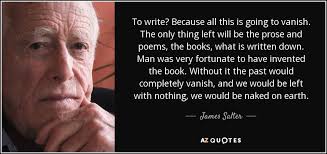 James Salter died at age 90 in June, almost a year after I gave this lecture at Mt. Holyoke College at the annual Warren Wilson College MFA alumni conference. Since I first encountered his stories 30 years ago, Salter has been the writer who most mattered to me. The Arrogance of Failure: On Reading James Salter “There comes a time when you realize that everything is a dream, and only those things preserved in writing have any possibility of being real.” James Salter, All That Is In the summer of 1984, half way into Orwell’s fatal year, at the dawn of Reagan’s supposed Morning in America , the August issue of Esquire arrived in my mailbox. “Take This Magazine on Vacation! The Best of Summer Reading,” The self-referential cover featured two fair-skinned representatives of what were then called Yuppies, a young man and woman snuggling in a beach hammock over the latest issue of the venerable men’s magazine. Beaming at the camera, they had evidently already read the contents and were knowledgable of useful tips for the male of the species to pick out an Oriental rug, properly pack his fly fishing rod, mix a pina coloda or book the best B&B for his next assignation. But for me, Esquire had gone one further with its first fiction issue, offering not just the motto “Man at His Best,” but my first real tips on “How To Be a Writer.” The cover listed a lineup of heavy hitters whose names I knew and books I had already devoured; Updike, Doctorow, Ken Kesey, the eternally ubiquitous Joyce Carol Oates, all vetted by guest editor Irwin Shaw who had just died that spring. But there was one author I had never encountered. His thumbnail picture inside did not do him any favors: a mustachioed man in a floppy fishing hat and plaid shirt, like everybody’s unfashionable dad on vacation, a serious mismatch with the elegance of the sentences that followed. The story was titled “The Fields at Dusk." which began with the line “Mrs. Chandler stood alone near the window in a tailored suit, almost in front of the neon sigh that said in small, red letters PRIME MEAT.” Mrs. Chandler, Vera her name, is a middle-aged woman living beyond the breakup of her marriage, a hasty love affair with her handy man. The story is set in hunting season, geese flying south in broken formation, shots resounding in the distance. Vera is, of course, wounded in her own way, forever grieving the death of a young son drowned in the sound. The story ends with an image of one of the hunted geese, felled by buckshot, bleeding out in the wet fields. Cut to a woman alone in a beautiful house. “She went around and turned on lights. The rain was coming down, the sea was crashing, a comrade lay dead in the whirling darkness.” I want to say that the words moving from the page inside of me eclipsed that August afternoon. I looked up and must have blinked. Things looked different. I was different. The unexpected difference that an encounter with art makes in our perception. I dove back in, rereading the story. Who was this guy and how had he worked this spell over me? Tom Jenks’ succinct biographical note takes a brief measure of the man: “James Salter was born in 1925 and grew up in New York City. He served 10 years in the Air Force, but resigned in 1957 with the publication of his first novel A second novel vanished, Salter said. “Without a trace.” He was then 40, with four children and “did not know what would happen.” Seven years later, he published one of the great literary works of our day. The story of a young American’s affair with a French Girl, “A Sport and a Pastime is a tour de force of erotic realism and displays the sophistication and brilliance that are now his trademark. Throughout his career, Salter has been more appreciated by more serious literary authors than has any other modern American writer. His writing slips almost mysteriously in and out of various characters’ points of view, creating not a single effect, but by the end of each story a multiplicity of effects that carry the reader deep into the meaning of human experience.” Jenks was right about the other writers’ praise. Richard Ford, Mr. Rock Springs, the Sportswriter himself, would declare: "It is an article of faith among readers of fiction that James Salter writes American sentences better than anyone writing today." As Susan Sontag observed, “Salter is a writer who particularly rewards those for whom reading is an intense pleasure.” James Salter of course is an invention. He was born Horowitz, to a successful Jewish family living in Manhattan. He followed in his father’s footsteps, a cadet at West Point, but missed the second World War. He became a pilot in the then Army Air Corps. And once crashed into a suburban New Jersey house on a training mission, the only causality being his pride. He hankered after the fame he saw in Jack Kerouac, a year or tow ahead of him at the prestigious Manhattan prep school, Horace Mann. When choosing a pen name, he wanted to make a statement, cementing his place in English letters. He wanted to call himself at first "Psalter" with a "P" as in the Psalms, but fortunately was persuaded that may be over the top. Salter seems like Hemingway without being a jerk, a heroic writer who writes of beautiful lives, of jaunts through Paris and the French countryside, of elegant lives in the best haunts of Manhattan. His first novel turned into a movie starring Robert Mitchum. He would go onto to write screenplays himself, direct movies, pal around with the likes of Robert Redford. Any summary of Salter’s career makes him sound like the older brother of The World’s most Interesting Man, the tongue-in-cheek shill on the Dos Equis beer commercial, “Stay thirsty, my friends.” The kind of guy, you want to go drink with him or sleep with him, depending on your own predilections. That impossible resume, the irresistible lyricism spoke to me. In his Esquire note, Jenks didn’t quite come and say it, but I knew I had found my “writer’s writer” in Salter. A “writers writer” is a the left-handed complement, code for someone who can’t sell commercially, only a step away from the cult writer with his feverish fanboys, easily forgotten. But in joining the sect of Salter, I was making an unconscious bet that I could be a writer as well, even if I failed and fame eluded me as it had Salter for so long. In the intervening 30 years, I would attempt to read anything and everything this man would write. At Malaprop’s, I found the North Point paperback of “A Sport and Pastime, which Reynolds Price lauded as “nearly perfect as any American fiction I know.” Hard to go wrong with a loose episodic theme: couple fucks their way through France, It remains the most sensuous book I've ever read on sodomy. yet something else more mysterious is going on than scenes glimpsed through a vaseline-smeared soft porn lens. This torrid affair is filtered through the imagination of a first-person narrator who acts as more than just a voyeur, but like a detective of a hidden reality, a shimmering essence underneath flesh. We see a clue in this passage to Salter’s method as a writer, and his effect on the reader: “Some things, as I say, I saw, some discovered, and some dreamed, and I can no longer differentiate between them. But my dreams are as important as anything acquired by stealth. More important, because they are the intuitive in its purest state. Without them, facts are no more than a kind of debris, unstrung, like beads. The dreams are as true and manifest as the iron fences of France flashing black in the rain. More true, perhaps. They are the skeleton of all reality.” (ASAAP, p. 58) “A Sport and a Pastime” could be dismissed as a tour de force, a one-off, high class Henry Miller, but his 1975 novel, “Light Years” made me an acolyte at his bright altar of crystalline sentences. I found a first edition in the old Captain’s Bookshelf in downtown Asheville and devoured it, then reread it, then pushed it on all my friends. In 1985, I would write my very first annotation of this book in my application to Warren Wilson, seeking admission into the MFA, following after Salter into this priesthood of prose. Salter said the book was inspired by a line from Jean Renoir: “The only things that are important in life are those you remember. That was to be the key. It was to be a book of pure recall. Everything in the voice of the writer, in his way of telling. I had a list of sufficiently inspiring titles, Nyala, Mohenjodaro, Esturial Lives. I was writing to fit them, though in the end none survived.” The story is the close dissection of a marriage, a successful, higher income family living on the Hudson River, making forays into the city. Their daughters grow up, their friends come and go, their love for each other slowly dissipates. Here, Salter had reinvented himself once more, no longer the military man. In interviews, he said the invention was largely conscious. He had come from such an exclusively male domain, a masculine life, he cultivated in his writing or attempted, a more feminine side. “Writing is filled with uncertainty and much of what one does turns out bad, but this time, very early there was a startling glimpse, like that of a body beneath the water, pale, terrifying, the glimpse that says: it is there.” Again that elusive narrator hovering in the background, the first-person observer, the creator, mysterious as Jehovah, that still sure voice, a man invited to their dinner parties, a dining companion, a neighbor, a voyeur, but always a witness to the brilliant wreckage of the years. There are passages that linger, like Viri shopping for hand-tailored shirts, the lilt of bright dinner conversations, the clink of champagne flutes, the good life to be envied, but the restlessness of love slowly draining away from these relationships. The world is made of bright things, shimmering, but somehow infinitely sad in how it slips away from our warm hand. "Life is weather. Life is meals. Lunches on a blue checked cloth on which salt has spilled. The smell of tobacco. Brie, yellow apples, wood-handled knives.” Salter can sometimes read like a sensual litany. There is a romance around the aura of detail he summons. Like well-placed ad for Pottery Barn. But then Salter can sound a note not readily seen in contemporary literature, or at least not since wisdom. Something out of Emerson or Ecclesiastes. But that easy elegance can be mistaken for a shiny superficiality, and Salter was stung by nasty reviews. The Times Book Review called it "an overwritten, chi-chi, and rather silly novel." Anatoyle Broyard deplored the character's arch names. Viri and Nedra. Salter made the cardinal mistake of answering his critic with a letter. "Come on, Anatoyle.” The book, which Salter had seen as his bid for a breakout, did not do well, only 8,000 copies or so, even in those halcyon days when novels were still at the culture’s center. E.L. Doctorow would find commercial success, with 200,000 copies sold of his breakout “Ragtime.” And do not think that Salter, a man among men who once painted their kills on the sides of their fighter jets, does not keep score. Salter is that rare writer who takes on ambition and glory, and of course the bitter taste of ashes int he mouth, the toxins of failure, envy, disappointment. If the American outlook can be summed up in Howell’s observation: Americans love tragedies with a happy ending,” then Salter seems foreign, almost French in his sensibility. Rigorously unsentimental like Colette or Celine, Salter casts a hard clear look on life, rearranging the players into his art. Salter has always insisted that his method is not to invent, but to take from reality. He works from extensive notebooks of what he has seen and heard, in a sense preying even on his closest friends for his art. I was troubled by the New Yorker profile that appeared last year. How much of the detail for Nedra and Viri was lifted from a real-life couple, the Rosenthals, that Salter had known and attended their dinner parties in his Hudson Valley days. “The Rosenthals were amazed, appalled, flattered and offended. Salter had said nothing to them about his work. Had he been writing it all down, discreetly taking notes?” Yes, he’s made a habit of that. “It makes people nervous sometimes,: said his friend Peter Matthiessen. “You see him writing away under the table.” How much is stolen or lifted from reality, how much is invented and embellished, these issues concern me as both one of the last surviving American journalists and as a novelist? How much allegiance do I owe to the private lives of others? Does the artist become somewhat of a parasite, a vampire, sucking the shiniest bits of soul from the people around him to serve his art? But those are topics for another paper, for the conversations around the dinner table. (Keep an eye on me. I may be taking notes under the table.) The literary life of course is not solitary. Writers need other writers, as much as they need readers. Henry James talks with Turgenev, with Howells, with Edith Wharton. Hemingway drinks with Fitzgerald in Paris, talks with Gertrude Stein. Franzen and DFW. Just as this gathering of Wallies has been crucial to my own survival as a writer for half my life now. We rarely hear from readers, but other writers tell us who we are. In his memoir, “Burning the Days,” Salter pays his tribute to Irwin Shaw, the writer he befriended in Paris, the first real writer he had met. Salter writes that “the truth was in the beginning, he saw in me the arrogance of failure. I had written two books, but the power I had was that I had accomplished nothing. My strength, like the evil-tempered dwarf’s, was that my name was unknown. He, on the other hand, was a writer of magnitude.” Shaw would warn his protege, that Salter perhaps relied too heavily on his lyrical talents, while Shaw was a narrative plowhorse. "Burning the Days” is his memoir, an elliptical account of what he considers worth saying about his life and career. It's been a kind of scripture for me on how to write and survive the writer's life. I keep rereading over long conversations with the critic and editor Robert Phelps. They met when Phelps had sent him a note in admiration of “A Sport and a Pastime,” intelligent praise. They met and began a correspondence that has been collected in the 2010 book “Memorable Days.” Phelps would guide his reading, introducing him to Isaac Babel, to Henry Green while downplaying others. “Faulkner is a terrible writer. He may be a genius but he’s a disgraceful writer.” Phelps would say. According to this critic, the 19th century novel had died with Ulysses, the writer pretending he is invisible, above all his characters. “It was the voice of the writer, Phelps insisted, that was the first and definite thing. Joyce and Proust with their forays into stream of consciousness and memory, commentary on character’s motivations, instead of portrayal of action, had pushed the novel form into a cul-de-sac. A second form is the writer speaking through character, inhabiting them, Henry James or Fitzgerald in Gatsby, or John Berryman Henry in the Dream Songs. The third form of the novel is the confessional, the first person, the writer standing before you. Salter quotes Phelps: “The original form of storytelling is someone saying, I was there and this is what I beheld. We are coming back to that. The mainstream was story, like the Bible, like Homer.” Somehow, Salter seems to inhabit all three forms, shifting easily in a third-person omniscience above his characters, diving deep into their psyches, while standing off to the side as a physical witness. He is everywhere and nowhere. Despite a long life, Salter has not exactly been productive. He turned a screenplay for Robert Redford into a 1979 novel “Solo Faces” about the heroic lives and failures of mountain climbers in Europe’s Alps. His stories came out as “Dusk” in 1988 and won the Pen Faulkner award. He revised his early flying novels “The Hunters” (reissued by Jack Shoemaker at Counterpoint in 1997) and “Cassada,” which was published in 2000, a rewrite of his 1961 sophomore flop “Arm of Flesh.” Then there was the inevitable cookbook, “Life is Weather,” written with his second wife, Kay Salter, an elegant book of days drawing on reminisences and favorite recipes. Salter has waited his turn, as an apprentice in Paris and the Hudson, as a teacher himself at Iowa Worksop, the writer’s writer waiting for readers. And at age 87, publishing his long awaited novel, his summary of a career. “All That Is.” You can see Salter combining all of his world, both the military career and the bookish world, the pursuit of both war and women, in the character Philip Bowman, who drifts through New York’s publishing world for a lifetime, from the 1940s up into the 1980s. The criticisms have followed him, afraid to ever again be accused of writing a silly, superficial book, he toned down the lyricism, what Irwin Shaw had cautioned him against way back in their Paris days. In its loose episodic blow, the book actually builds to a shocking sexual betrayal that provides the emotional climax I am still ambivalent about. Bowman is betrayed by a lover with whom he had bought a vacation house in the Hamptons. In revenge, he seduces the woman’s daughter, whisks her away to Paris, has of course the rear entry lovemaking, and abruptly abandons her. I believe I put the book down, my jaw dropping. I corresponded with Robert Boswell, my last teacher during my Wally sojourn. He and Toni Nelson had just hosted Salter in a writer’s visit to the University of Houston. Me: “ I’m not at all sure what I think about Bowman's betrayal of that girl in Paris. A little too cold and cruel, French, maybe, for my Puritanical tastes, and I'm not sure the novel ends so much as fades off. But other than A Sport and a Pastime, I'm not sure that Salter has ever nailed an ending in a novel.” Boswell’s reply: Salter: Her mother had not only messed him over in matters of the heart, she'd taken his house. Of course, he wants to get even, but I wasn't thinking that way at all when I went with them to Paris. I was just as duped as the girl--one of the most thrilling episodes I've ever read.” But unlike his protagonist, Salter doesn’t just dump the character. In the penultimate chapter, we see the girl, Anet, later at her wedding day in 1984, then again in Salter’s strange mastery of time, a flashback to the dramatic confrontation of mother and daughter back from Paris, having slept with her mom’s former boyfriend. “He wanted to show you were a little slut. He didn’t have to try very hard. You know, he’s 30 years older than you. What did he do tell you he loved you?” The novel’s final chapter finds Bowman with yet another woman, frolicking in the sea. But later on land, tending his garden, he catches himself with the realization that under his tennis shorts, he has the legs of old man. “He was too old to marry. He didn’t want some late, sentimental compromise. He had known too much for that. He’d been married once, wholeheartedly, and been mistaken. He had fallen wildly in love with a woman in London, and it had somehow faded away. As if by fate one night in the most romantic encounter of his life he had met a woman and been betrayed. He had believed in love - all his life he had - but now it was likely to be too late.” The book trails off with Bowman looking ahead to a trip to Venice, maybe in November. Which leaves me ambivalent. Is that truly “All There Is”? Bowman, though he fought in the Pacific, is no hero. Nothing seems to deeply change in his personality, which may be Salter’s exact point. No heroics here, only survivors for a time. And in his last novel, likely his last, this faithful reader saw at last the pattern, a disturbing figure in the carpet. Following the writing of one writer obsessively gives a sense of the more unconscious, unsavory obsessions. Salter is no fan of the mere missionary position. Every woman we see from behind in most every sexual scene. The obsession with anal sex starts raising unsettling questions about Salter. Yes, he is a master of prose, but with that subtle confusion of narrator, character and author, Salter is seen by more than a few female critics as an antiquated throwback to the Rat Pack days of a man’s man’s world where all women are taken not in love but in lechery, and always from behind. (See the online debate between Roxana Robinson and Katie Roiphe “Is James Salter a Sexist.”) I am aware in writing this essay, in going through my collection of Salteralia and revisiting his influence, that I have fallen prey to hero worship. There’s always that masculine insecurity, the eternally adolescent need for role models: Am I doing this manhood stuff right? Let alone the anxieties of a writer: Will I ever find fame, perhaps a little fortune. Will I be loved and admired? This sounds blindingly obvious, but I’m not sure that Salter, or for that matter any other writer, or another human being, is a reliable guide for how to live your own life or write your own books. Salter sings of himself, of what he has seen in the world. He is a survivor. I can admire his sensibility, but I cannot steal it through imitation. Writer’s lives serve as warnings. And we can only envy the shiny surfaces of others. Heroes are by definition, fallen. The flutter of flags, the beating of the heart, in what is a lost cause, a hopeless battle, a last stand. The golden age of the novel is long gone, if there ever was such a mythic realm. We are living in the ruins of Dickens London, Proust’s Paris has crumbled like the madeline cookie, Yoknaptawapha has been paved over with Super Walmarts and Chick-fil-A’s. In “All That Is,” Bowman, who has made his career in publishing novels, reflects: “The power of the novel in the nation’s culture had weakened. It had happened gradually. It was something everyone recognized and ignored. All went on exactly as before, that was the beauty of it. The glory had faded, but fresh faces kept appearing, wanting to be a part of it, to be in publishing, which had retained a suggestion of elegance like a pair of beautiful, bone-shed shoes owned by a bankrupt man.” But Salter says this still matters, that amid the faded glory that the literary life is heroic. “When was I happiest, the happiest in my life? Difficult to say. Skipping the obvious, perhaps setting off on a journey, or returning form one. In my thirties, probably and at scattered other times, among the weightless days before a book was published and occasionally when writing it. It is only in books that one finds perfection, only in books that it cannot be spoiled. Art, in a sense, is life brought to a standstill, rescued from time. The secret of making it is simple: discard everything that is good enough.” So in keeping with Salter’s method, let me trail off here, rather than end with any grand conclusion. I’ve gathered my episodes, polished them, flung them at you, the audience, suggesting this is “All That is.” Perhaps what I should say is that James Salter has shown me not how to succeed as a writer, but how to fail and still persist. Following his example has taught me the long toil in this work we do, to encase the fine detail of the world as in amber, to bring out a brilliant shard that suggests a lost wholeness. The life spent trying to make meaning, make literature can be rich and rewarding, but also full of failure and frustration. We drink from a bittersweet cup, ashes always mixed with wine, and we are forever thirsty. In his memoir, in the chapter titled “Forgotten Kings,” Salter writes of his friend and mentor: “Somewhere the ancient clerks, amid stacks of faint interest to them, are sorting literary reputations. The work goes on eternally and without haste. There are names passed over and names revered, names of heroes and of those long thought to be, names of every sort and level of importance. Among them is Irwin Shaw’s” he writes. And I would add among those heroes the name of James Salter.
8 Comments
 Mangroves – the name comes from the Arawak people who once thrived across the Caribbean. It means “mangle” in that indigenous tongue. Once you’ve paddled past a million of these mangroves, what the Seminoles called walking trees, sending their arms down into the salted water to take root, to multiply and create thousands of islands out here, you begin to appreciate the seemingly endless maze that is the Everglades. Two nights out on the water, three days from setting foot on dry land, pitching your tent on platforms known as “chickees,” roofed docks, you begin to feel unmoored, unplugged, off the grid, fingers no longer itching to swipe a screen, to check the email, Facebook and Twitter for the latest tasty tidbit of useless information. You begin to settle into your life. The charts before you, the mangroves reflected in the perfectly still water, a mirror image of the clouds puffing over the end of Florida. Then we get lost. It starts with a wrong bearing off the Lane Bay chickee, heading southeast across the bay in search of the close channel that leads to Hell’s Bay. At least that was the plan we had with our friend and guide, Anne. You get lost by degrees “I think that may be it,” you call from the bow. So Anne rudders the Mad River canoe into a narrow passageway, a few twists and turns and you’re heading steadily northeast, rather than any southeasterly bearing. The sun gets hotter, you keep paddling. You check your charts. When you come out on a bay again, wondering if this is Hell’s Bay, then off to the north, you see the Lane Bay chickee, its portajohn visible on the dock, we all laugh hysterically, in dismay. We have spent all afternoon, wandering in a big circle Then we lose sight of the chickee and paddle into another bay. The sun is setting. Mangrove islands are no friends, their knees high in the water, with nothing but muck for men to step into. What Anne looks for is an island out here in this nameless bay with a mahogany, a tree that needs high ground to thrive. We paddle toward the island, aiming our bow into the overhanging underbrush, toward what looks like a gator slide, a shelf where one of the Everglades’ residents will sun himself, wait for dinner. I step up onto dry land, and crash in-land, through the thickets of laurel, poisonwood, fern. There’s just barely enough space beneath the mahogany at the center of this small isle to pitch a small tent. My wife and I will spend the night here, while Anne sleeps in the canoe. We do not sleep well. At night, you can hear a great munching sound outside the tent; we imagine a gator chewing over the remains of some large dinner, the cracking of bones. By daybreak, we can see the water only a few feet away from our perch, lapping at the little dry land here. We are 24 hours lost, but Anne has sent out satellite transponder signals to her padding partner back in the world. Standing up in the stern of the canoe, Anne is able to get a few bars on her cellphone and call Holly. We have a location point from my Garmin watch, a point of reference, but unable to find our abstraction on any map. Holly is able to pinpoint us and chart us a way back on the map. We are not exactly found, but we are not lost now. We have directions. We are saved. Getting off course is how discoveries are made, Getting lost is how you find things. Our knowledge, our maps are finite, we expand when we explore. We keep our heads, even when we lose our bearings. Names are foreboding but important in a wilderness like the Everglades. Hell’s Bay doesn’t sound inviting. “It’s hell to get into and hell to get out of.” One early ranger said. Figure it's a purgatory even getting to Hell’s Bay. But there is a paradise in what others would see only as a watery wasteland. There is now on the nautical charts that Anne paddles by, a new penciled name of a small island in a unnamed bay, west of Lane Bay and north of Hell’s Bay. Welcome to Neal Key, where we were the first people to camp in the endless maze of mangroves, the labyrinth of bays and lakes and channels, that is the Everglades. 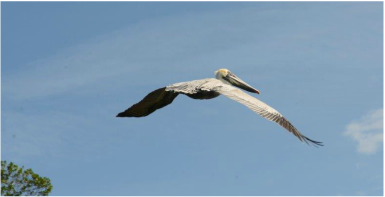 Florida has never been my favorite place, where America seems to drain down, gator farms, and fake mermaids, citrus stands and Anita Bryant, hanging chads back when the 2000 election hung in the balance. The Sunshine State seems to have more than its share of shady business, huckster and con-men, get-rich-quick schemes, dreams of retirement, buying time, cashing in our Golden Years, where we go to wait out death in Amercia. Down I-95, clogged with RVs and ancient men at the wheel, beyond Disney and its sanitized fairy tales, past the miasma of Miami, driving hard to Homestead, then further down the Florida Turnpike to Highway 1, past the Dade County Correctional Institute, beribboned with razor wire, the washed-up and incarcerated of America’s underclass, the irrigated fields of produce give way to wilderness, you enter the Everglades, the U.S. Largest wild region east of the Rockies. You are in another place - the limestone shelf as Florida’s peninsula turns into the million-acre sponge and land starts drowning. It’s easy to say there’s nothing here but space and sky and the brown grasses stretching seemingly forever to either horizon. This is salt prairie and if Google Maps hasn’t gulled you completely into a false sense of security, you start thinking Kansas, the fat, flat midsection of America, even as you drive to the end of the East Coast. The Everglades got its start as a national park in 1947, protected for its ecological importance rather than any striking view. No sublime Grand Canyon, no Old Faithful going off on the hour, no majestic Half-Dome in the distance. Here is water. Water everywhere, flowing a river of grass, always in motion instead of any stagnant swamp. Here is a harsh landscape teeming with life that has learned to take this place on its own terms. Amid the salt prairie, springs up the dwarf cypress forest. Trees that are century old, bonsai’ed, and silvered in the white sun, their roots barely clinging to the limestone shelf that undergirds all of the Everglades, keeping this in the realm of land rather than the Gulf of Mexico. A roadside sign signals the Park’s 3-foot high mountain, more molehill than any serious peak compared to the Southern Appalachians we’ve driven from, or the younger, rugged peaks out west. Here, the trees begin cluster into domes out on the prairie, engineered by the alligators. Caught out in the dry season, the reptiles will dig with their front legs and their powerful tails down to the water table to hunker down. Birds come in for a drink and turn into dinner. Trees begin to sprout and take root around the perimeter. An ecosystem takes shape. Trees grow taller around the doughnut while the gator sleeps at the center with dreams of her ancestors, the ancient dinosaurs who swam the shallow sea that once covered this land. Perhaps something deep in the small reptilian brain even remembers the vague age when Florida was a handle to Africa in the supercontinent Pangea, when the Earth was in its infancy. Our guide Anne said she had started to weep, driving across this landscape for the first time. Perhaps reminded of the marsh land where she had grown up around Wrightsville Beach in North Carolina, or the savannahs of Africa, a genetic memory that says you are home, even in a harsh environment where fresh water is at a premium, where hurricanes come to land, and thunderstorms are hatched on the horizon in summer. You are more likely to be eaten alive by mosquitoes at dusk than any alligator. We have come down to paddle the Glades, four days into the waterways, the mangrove mazes, the bays named and unnamed, to be lost and to lose our civilized shells, to go off the grid. Pioneers had slogged their way here to hunt birds and gators, to fish the ten thousand islands. The Indians before them, Seminole who never signed any peace treaty with the duplicitous United States government, and before them, the midden shells of the Calusa, the fierce people here when the Spanish had washed ashore, sinking into the muck with diseases and epidemics, the ethnic cleansing that had wiped out whole villages, towns, populations and cultures before the white men even came claiming everything for God and greed. We have come here to lose ourselves, but more of that tale in our next installment. 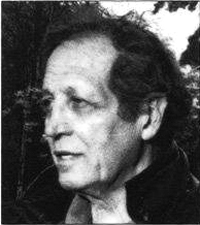 I came across Ted Solotaroff's essay "Writing into the Cold" way back in my grad days at Warren Wilson College. It was of course news that I didn't want to hear, truths I didn't want to believe – that there are not shortcuts in writing, and that the path I had chosen was not an expressway into any fame or applause. It takes much of a lifetime to even hope for a little mastery in making fiction. And Solotaroff's timetable was eerily accurate for me. Twenty years almost from graduating from Warren Wilson and publishing my first novel. But I've come to treasure all that time – the reward has been in the writing itself, word after word, page after page, day by day. It does change you. "The writer's defense is his power of self-objectivity, his interest in otherness, and his faith in the process itself, which enables him to write on into the teeth of his doubts and then to improve it. In the scars of his struggle between the odd, sensitive side of the self that wants to write and the practical, socialized one that wants results, [the writer] is likely to find his true sense of vocation. Moreover, writing itself, if it is not misunderstood and abused, becomes a way of empowering the writing self. It converts diffuse anger and disappointment into deliberate and durable aggression, the writer's main source of energy. It converts sorrow and self-pity into empathy, the writer's main means of relating to otherness. Similarly, his wounded innocence turns into irony, his silliness into wit, his guilt into judgment, his oddness into originality, his perverseness into his stinger. Because all this takes time, indeed most of a lifetime, to compete itself, [the writer] has to learn that his main task is to persist." -- Theodore Solotaroff, "Writing into the Cold" 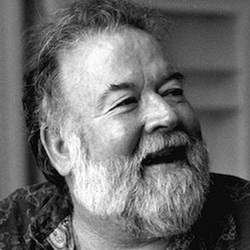 Whenever I fret about writing fiction as a worthwhile pursuit for a grown man, or whether journalism will survive another decade, I go back and read Andre Dubus on what's at stake when we sit down and write: "An older writer knows what a younger one has not yet learned. What is demanding and fulfilling is writing a single word, trying to write le mot juste, as Flaubert said; writing several of them, which become a sentence. When a writer does that, day after day, working alone with little encouragement, often with discouragement flowing in the writer's own blood, and with an occasional rush of excitement that empties oneself, so that the self is for minutes longer in harmony with eternal astonishments and visions of truth, right there on the page on the desk, and when a writer does does this work steadily enough to complete a manuscript long enough to be a book, the treasure is on the desk. If the manuscript itself, mailed out to the world, where other truths prevail, is never published, the writer will suffer bitterness, sorrow, anger and more dangerously, despair, convinced that the work is not worthy, so not worth those days at the desk. But the writer who endures and keeps working will finally know that writing the book was something hard and glorious, for at the desk a writer must try to be free of prejudice, meanness of spirit, pettiness, and hatred; strive to be a better human being than the writer normally is, and to do this through concentration on a single word and then another, and another. This is splendid work, as worthy and demanding as any, and the will and resilience to do it are good for the writer's soul. If the work is not published or is published for little money and less public attention, it remains as a spiritual, mental and physical achievement; and if in public, it is the widow's mite, it also like the widow, more blessed." Andre Dubus, Meditations form a Moveable Chair  I wrote the following piece back in 2010 just as winter was wrapping up, but the recession was still hitting our region hard. This op-ed essay took on a life of its own, handed around workshops by Erin Stalcup out at Warren Wilson College, and even finding mention in Mars Hill Universitiy professor Kathryn Newfont's prizewinning study "Blue Ridge Commons." Four years later, it's sad how little has changed. A long hard winter is finally over if you simply count the days of the calendar, but hard times haven't ended in our country. I was reminded of that when I took to the woods recently. With the first Sunday warming into the '50s in between our seemingly endless snowstorms in January and February, my Golden Lab, Pearl, was eager to get out, and I'd been feeling the cabin fever, trapped indoors far too long. Climbing the Daniel Ridge Trail in the Pisgah National Forest, Pearl and I made steady time through the mud, then higher up into the melting snow. Continuing up the adjoining trail to Farlow Gap, the drifts got deeper and I stopped to strap on some gaiters to keep the snow out of my boots. Pearl and I weren't alone. I could see a series of footprints pointing out the trail underfoot. We soon found him coming down the trail, a man in a thin coat with a green canvas sack on his back. He had on boots, but his jeans were soaked to the knees. In broken English, he asked if Pearl was friendly. My Lab has no bite, just all bark, and she was licking at his hand by this time. "Seen any galax?" he coughed, evidently sick with a cold. "Seems like you got the wrong season," I said. All around us, the ridges were draped with white. Galax was out there, but it was anyone's guess where under eight inches of snow. We parted, and about a mile up toward the Art Loeb Trail, I came across his partner, another Hispanic man with soaked jeans and an empty sack. "Your partner's just ahead," I pointed back down the trail. Both men seemed a little scared of my dog, but even more rattled by the unfamiliar woods they found themselves in. I had to wonder what deeper anxiety drove them up the mountain that day, perhaps fears about a family going a little hungry or without warm clothes or paying the bill to keep the lights on in a little mobile home in a trailer park. That was the last we saw of them that day. I don't know if those two men had a permit to pick galax, which is now required in the National Forest. I don't know nor really mind if they had legal papers to be in our country. All I know is they seemed desperate enough to hike miles through the snowdrifts for a few plants that would pay only pennies per leaf, if they could find them. Later, I called up Jeanine Davis at the North Carolina Horticultural Research Station in Fletcher, the area's premier expert on most every herb growing wild in our mountains. The payoff isn't that much, she confirmed. Galax, an evergreen perennial used as decoration by florists, only fetches about a few pennies per leaf on the wholesale market. Some dealers may pay as much as $1.85 for 25 leaves, Davis said. But Davis sees more and more folks are taking to the woods, trying to scrounge a few dollars. "They're underpaid or unemployed, so they're going back to old traditions. The only problem is where people are pulling up the whole plant, instead of just picking the leaves. They're causing a lot of damage," Davis said. Those old traditions and the desperation that sometimes drives them came up again for me, reading Ron Rash's story collection, "Burning Bright." In one story titled "Hard Times," set in the Great Depression, Rash spins a tale about a mountain family gathering galax to keep food on the table. The story's main character catches one of the starving children stealing eggs from his henhouse. How he catches her provides the hook and sharp horror of Rash's story. In the end, the man lays himself down to a restless sleep. "He tried to imagine a place worse than where he was." The calendar may have turned to spring, but the hard winter of our American discontent and the effects of the Great Recession aren't past for many folks. When I think of the Great Depression, I automatically see Walker Evans' searing portraits of Alabama sharecroppers, their worn faces showing the toil of poverty, of hard times. In the Great Recession, I'll carry the portrait of two galax gatherers, poorly clothed against the snow, coming back down empty−handed. 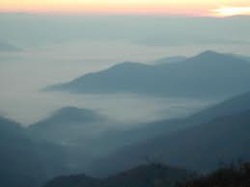 I went for a walk in the woods recently – a long walk, 52 miles, all told, in five very wet days in the Nantahala National Forest, which they could rename the Nantahala Rain Forest to be more accurate. I made a loop with the Appalachian Trail and the Bartram Trail, named after the Quaker naturalist William Bartram, who trekked into the Cherokee mountains two centuries ago. I wasn’t exactly alone. Bentley, my Golden Retriever, kept me company and hauled his share of dog food in his own saddlebags. He was wet and muddy and shook every time I took his pack off, but he trooped on with me. I was looking for a vision quest, I suppose, a chance to unplug from the Internets, from cellphones and TV and work and book tours and civilization for a time, and perhaps recollect my thoughts. I had in mind Gary Snyder’s example, the Beat-influenced poet who after a stint on a backwoods trail crew in the 1950s decided to do a meditation walk of 10 days across some wilderness. “During that process – thinking about things and my life – I just dropped poetry. I don’t’ want to sound precious, but in some sense I did drop it. Then I started writing poems that were better. From that time forward, I always looked on the poems I wrote as gifts that were not essential to my life… Every since, every poem I’ve written has been like a surprise….” I’ve already beat to death the metaphor that writing a novel is like making a long journey, that putting a paragraph down is like putting one foot after the other. But metaphors drain away on elevations presented by the AT and the Bartram with gains or drops of 3,000 feet in a single day. I wasn’t doing much deep thinking when I was climbing up from Nantahala Lake toward Jarrett Bald and onto Wayah, praying the rain showers wouldn’t circle back around. My feet were blistered, but no matter. Every few hours, I would free my pruned feet from their wet boots, doctor my wounds as best I could, wring out my socks, then lace up my boots again, hoist my 35-pound pack, and go on. But on the fifth day, an epiphany. The sun suddenly started to drill through the clouds, the first glimpse of our planet’s life source in four overcast days. Bentley and I were up on Rocky Bald, about 40 miles through our trip, taking a breather. We had been traveling through dripping forests and the belly of clouds, unable to see much of anything. But now, emerging out of the current of clouds, mountains began appearing and disappearing like the backs of blue whales in a white ocean. Thoughts are not complex on the trail and not much more profound that my constant childhood whine from the backseat of my parents’ Impala – “Are we there yet?” Instead of novels and writing and bookselling, I thought mostly about how far I should keep going until my next break, or whether that glimpse of light through the trees bespoke the summit. The Appalachians are tricky, fold upon fold, switchback after switchback, up to the elusive ridge line. The clearing is never around the next bend, the next rise gives way to yet another steep climb. Bentley stood atop the trail and waited as I stood bent beneath my pack, leaning on my trekking poles, catching my breath, wet with sweat or rain, it did not matter. I kept going, and perhaps that’s the only real meat to this metaphor. Writing is a long haul, like hiking a 52-mile loop. You get tired, you fall down, you get up, you get blisters, you keep going. Was it worth it, even with less than optimal weather, or 2 inches of rain? I think back to that dim sun, burning about the size of a silver dime through the veiled sky, and the humps of mountains swimming toward me from the horizon. I had the barest of visions, but I could feel the immensities, benign beings surrounding me, studying a middle-aged man and a wet dog on a bare rock 5,000 feet up in the Nantahalas. Yes, that’s worth a long walk and the words I carried back. 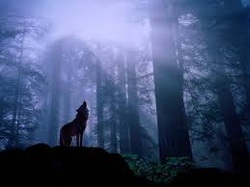 Blogger extraordinaire Michele Tracy Berger has a wonderful site "The Practice of Creativity" with nice tips on leading the artist's life. I'm honored that she asked me a few questions about my novel "The Half-Life of Home" and writing in general. What’s your best writing tip? Play hard in the dark. Remember the primal exhilaration of running free through woods and fields on a moonlit night, feeling a howl coming up your throat? Good. Write like that. We are the boy who cried Wolf. Remember that writing fiction is not a rational activity at this stage of Late Capitalism and celebrity culture. Very few people will listen, but I can’t think of a more serious game. Can you name the moment that you felt you were really a fiction writer and did it come before or after publication? Sorry. In some ways, I’m still waiting for that feeling, that moment of “I’ve arrived, I’ve made it into the published author’s club, someone’s going to give me the secret handshake now.” Ain’t going to happen. If you keep writing, you keep failing. As Beckett said, fail better. You have to remember the advice Rilke gave his young poet friend who kept pestering him about publications, which are the right magazines, what’s the right agent, etc. Quit asking those questions. Those aren’t the most important ones. Learn to interrogate your dreams rather than your ambitions. What’s the less glamorous side of a published writer’s life that aspiring writers often don’t see? Glamor is a word better associated with films. Writers, I don’t think, are performers in that sense. The life of a writer is not glamorous. Don’t get me wrong. It’s extraordinary to meet and talk with readers who love good fiction, but the real payoff is on the page: repeatedly sitting down and putting one word after another into sentences, paragraphs, chapters, books until you simulate the real world. You get to meet both your best and worst selves on that page if you persist. How has your career as a journalist supported your work as a creative writer? Well, it’s certainly paid for the groceries and light bill along the way, and for that I’m most grateful to be among that dwindling tribe of American journalists. It’s also taught me to be continually curious, which of course helps when you’re researching facts that often seem surreal or imagining fictions that seem real. Journalists work hard to grasp and say things very quickly. Novelists have to work equally hard to say what can only be said slowly, now the passage of time shapes character. Read more at Michele's blog http://micheleberger.wordpress.com/  The talented short story writer Ruth Moose has a nice review of "The Half-Life of Home" up at The Pilot website, the local newspaper down in the charming sandhills of Southern Pines. Thomas Wolfe got off the train here a time or two to mosey over to Weymouth House to write up part of his continuous welter of words. And poet/publisher Sam Ragan ran The Pilot for years, making sure that literature got its proper coverage with the local politics. I'll be down there myself on Tuesday, June 25 for an afternoon reading at The Country Bookshop. Here's what Ruth has to say: Dale Neal, who lives and writes in Asheville, wrote one of my favorite books, “Cow Across America” (Novello Press,Charlotte, comes up full swing again here with his new novel, “The Half Life of Home.” Royce Wilder has a house full of troubles what with the family acreage where Mama and Uncle Dallas still live, his wife, Eva, the practical one and an epitome of a teen age son, Dean. Smart mouth, full of sass and so real you want to smack the page. Wilder is the kind of guy who lives next door and somehow manages to step in cow pies even on city sidewalks, with old girl friends like Lucy Green and big money in his face, but when he goes to homecoming at Beverdam Baptist Church, Mama sets him back on the straight and narrow path. Then there’s the Witch Woman who decorates her cabin door with dried rattlesnake skins — still singing with all their buttons on. And Kyle the homeless waif who knows a secret he can’t ever tell. We are quickly caught up in their lives and a plot with an accordion fold that’s smooth and creamy as milk-cooked grits. Neal writes clear, honest prose, a rarity these days, and makes you care about his people, our landscape and where the world is fast going if we don’t keep an eye out. Trust me, you’ll like this one. And Dale Neal. Thanks, Ruth. 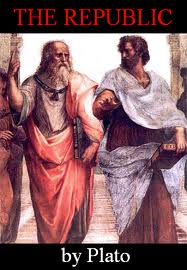 He made the rounds of the book fair, dragged here on a rainy day by his wife, no doubt. You could see the poor guy stopping by each table, examining the bright covers of historical novels, children’s books, chick lit, vampire sagas, young adult readers. A frown on his face. “What do you have here?” “These are my novels,” I said. “Sorry, I don’t read fiction.” Oh, He still read some, even books, but he liked the facts, definitely non-fiction. He liked it served straight-up, no agenda, no ax being ground in the background. Retired engineer from New York, now 83, he read the Wall Street Journal religiously for the news, you know. No axes grinding away there, of course. What do you say to a man in possession of all the facts? “I don’t want to argue with you, but sometimes you guys take liberties with the truth.” Still, he shook my hand when I admitted my day job was as a business journalist, even with the mainstream liberal media, a step up, I suppose, from pure fictioneer. We didn’t tread into the political, nor come to any blows. He knew he was in the South, where fighting words aren’t hard to find. Oh, he done his time with fiction back in school, read plenty of novels back then. At 83, he wanted efficiency, not folderol or tomfoolery. And yes, I understood how he may have tired of fiction, the usual boy meets girl, good guys fighting bad guys, boy finding father figure, narrative arcs all done up in neat bows by the end, the tired plots recycled now by Hollywood comic books come to sad 3-D life on the big screen. My retired engineer is no anomaly. He has a proud pedigree in his Puritan distrust of the lies that make up literature. Plato was ready to kick out the poets from his perfect society, if they weren’t going to pull their weight in the pursuit of higher Truths. But the facts can get in the way, and in our time, often get rearranged to coincide with an idealogue’s particular agenda. No less a literature lover than Stalin explained, “The death of one is a tragedy, the death of a million is a statistic.” Funny how totalitarian regimes made sure to imprison and execute the poets rather than the engineers. So what to say to the guy who reads no novels, fancies no fictions other than his own assumptions? Good luck, buddy, and move along. That’s not what I’m after when I read or write a novel. For me, fiction always aims beyond all those unfeeling facts and cold statistics, tells me things I don’t know, not the things I think I already know. I first was inspired to write by Thomas Wolfe, who nailed exactly how it felt like to grow up in a stifling small town, sensing “the buried life” underfoot with each step of the familiar sidewalk, or seeing the stone angels walk the streets of his town at night. Or David Foster Wallace, not exactly a slacker when it came to the IQ department (here was a guy who did a treatise on infinity). DFW had it right: fiction is about “what it feels like to be a human being.” I hope my retired engineer found himself a good book, telling himself all the stories he wants to hear. |
Dale NealNovelist, journalist, aficionado of all things Appalachian. Archives
April 2023
Categories
All
|
|
© Dale Neal 2012. All rights reserved.
|
Asheville NC Contact
|
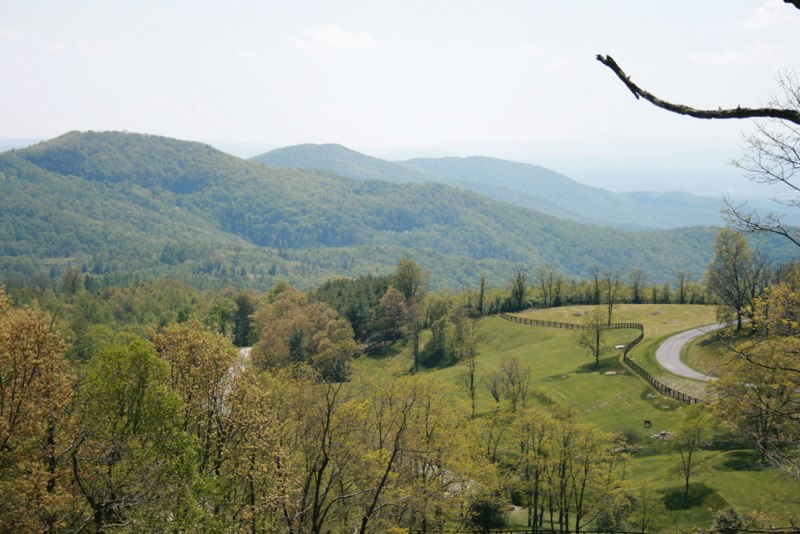
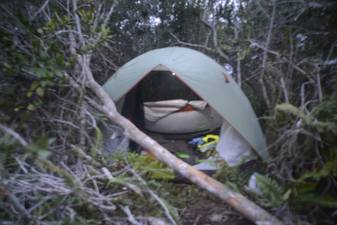
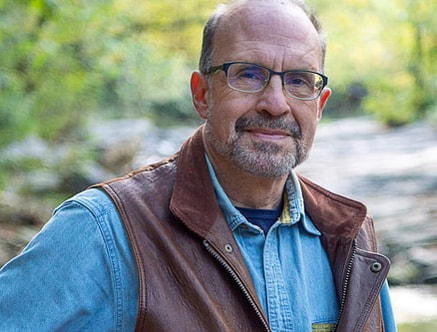
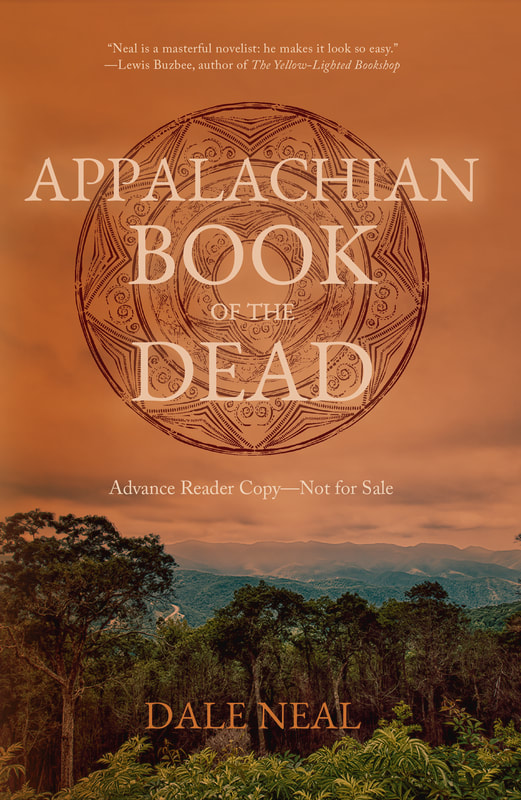
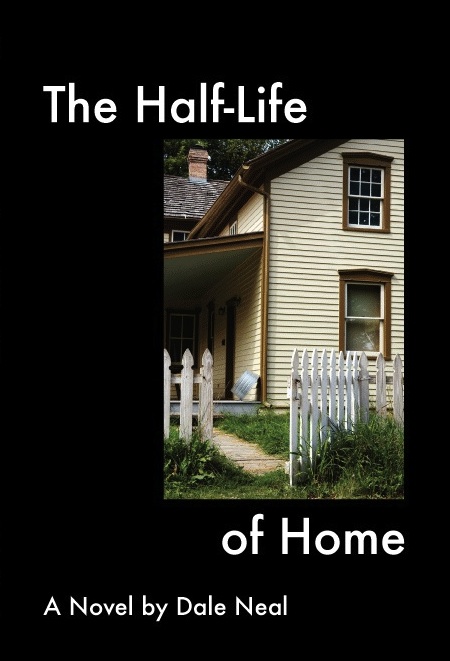
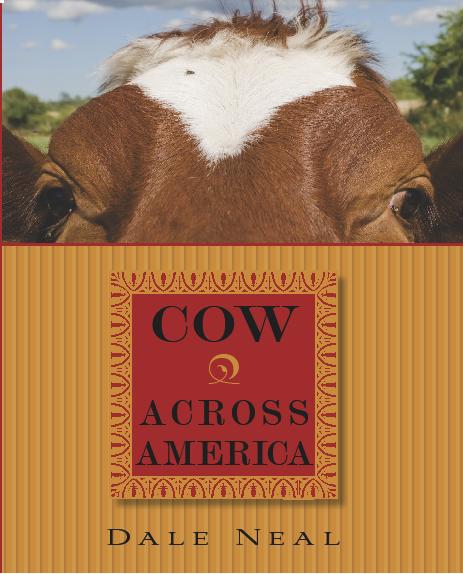
 RSS Feed
RSS Feed